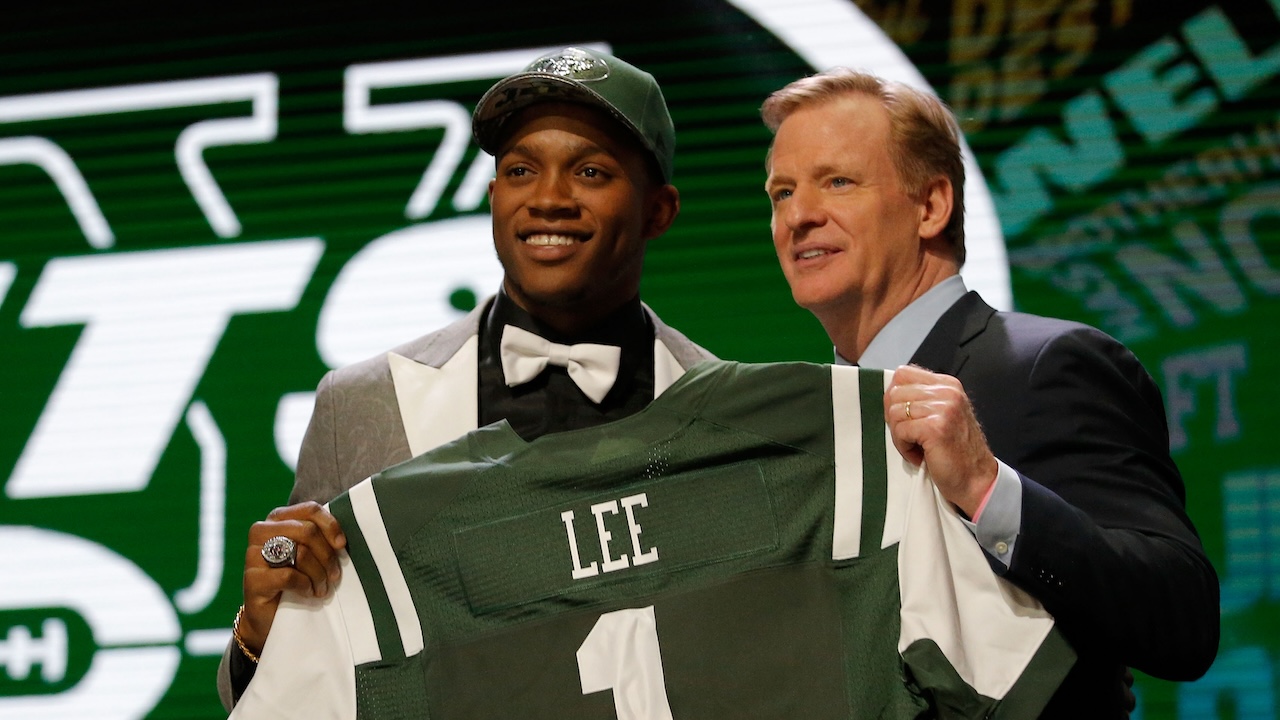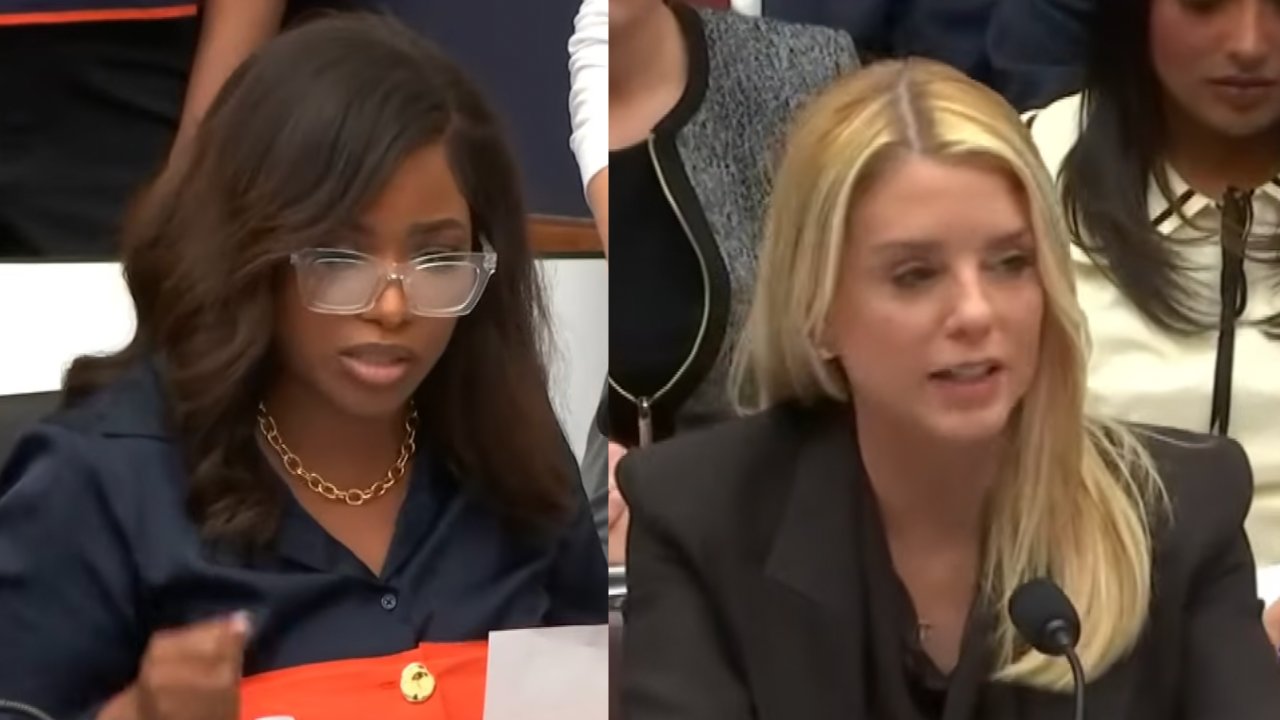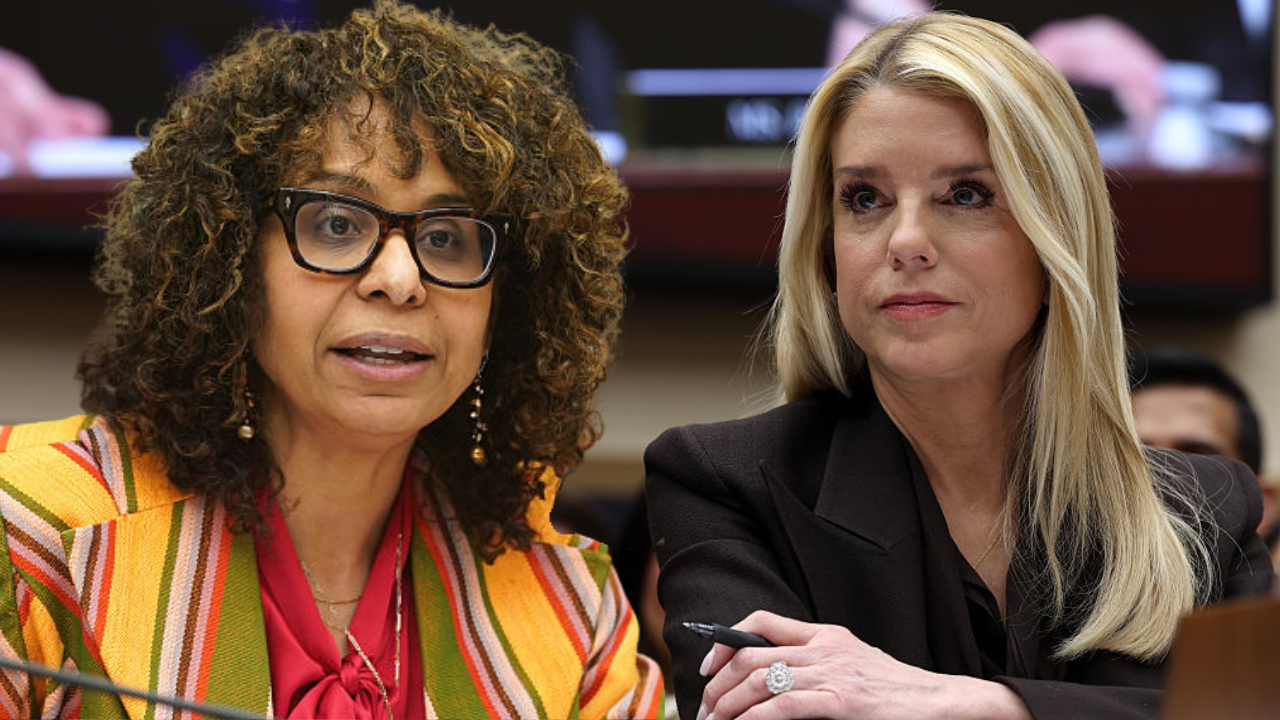Black people loved Malcolm-Jamal Warner fiercely. And he loved us back

Listen to this story
This one hits differently.
The sudden, tragic and horrific loss of our dearly departed Malcolm-Jamal Warner hurts like hell. Y’all, 54 is too young.
It’s around that age when you have finally, and confidently, settled into the human you’re supposed to be and your voice is its most amplified. It’s the time of life when you know so much because you’ve lived it and you’re ready — really ready — to finish becoming who you’re supposed to become.
But no, this is bigger than that.
And losing him hits differently because of it.
Warner was our brother. Our cousin. He was our homie and one of the first to change the narrative about what a young Black American teen was in the 1980s and ’90s. Along with his TV family, he gifted the world a view of Black life that some just simply didn’t believe was fathomable at the time.
Oh, but it was.
“The Cosby Show” premiered on my birthday in 1984. My family was living in Gainesville, Florida. I was a little one, but I remember that day well. I sat on the floor in front of the couch in our converted den to watch this Black family on my TV screen. The second I saw Rudy Huxtable (Keisha Knight-Pulliam) my eyes grew bigger. She was me, a chocolate-brown girl who spoke like me, had parents who felt very much like my own, and who existed in a world that was far from what we might have shown hours earlier on the 6 o’clock news. Even back then, I knew it was exhausting to see the same images and stereotypes of folks who looked as if they could be in my family.
And then I saw Theo.
Theo.
This was likely the first time I swooned.
Al Levine/NBCU Photo Bank/NBCUniversal via Getty Images
Theo was Rudy’s older brother on “The Cosby Show.” And actor Malcolm-Jamal Warner — by my best estimation back then — could have easily been the sixth member of New Edition. That’s high praise, because it was and still is my all-time favorite singing group. Warner was my kind of cute: hair brushed into soft waves, a charming smile and brown skin on brown skin on brown skin.
His crush-worthy image was essential to me as an elementary school girl. Many of my white friends often saw themselves, their lives and their families reflected in media and music. I only got whispers of mine. Periodically.
I’d only discovered New Edition a year before “The Cosby Show” premiered because my big cousin Jackie in Detroit played their music over and over again. And because I’d really never seen a group of brown-skinned boys singing in harmony — a group that was all for me and other young Black girls — I fell in love. The world was changing at a snail’s pace, and I needed music that belonged to me and was not my parents’ usual staple of Motown classics.
My first crush, the first guy I could talk about with my friends and felt joy about was Malcolm-Jamal Warner. “The Cosby Show” was one of the most popular shows on TV and they knew him too. It felt awesome.
The show, and my crush on Theo, normalized my experience. And while I didn’t have the language back then that we have now, it made me feel seen.
Theo, Rudy and the rest of the family made many of us feel seen. And explained. I would often hear friends, but even adults say to me, “You guys are like the Huxtables,” as a way to describe my family.
NBCU Photo Bank/NBCUniversal via Getty Images
Sure, that was a micro-aggression rooted in the racist structure of the society we were growing up in, but for me it gave me relief because I’d gotten tired pretty early in my life of trying to battle the “you talk white; were you adopted by white people?” questions.
In “The Cosby Show,” we finally had a college-educated Black nuclear family that didn’t need to move on up to the right side of town because they were already there. And being successful didn’t compromise their Blackness or – and here’s the gotcha-gotcha — make them shy away from it either. Their home was filled with afrocentric artwork, the music they celebrated was Black, and the colleges they championed (both fictional and real ones) were HBCUs, like the one my dad graduated from.
And it wasn’t just people who looked like me who watched the show. Everyone watched. For five seasons, “The Cosby Show” consistently topped ratings charts, and it became one of the most popular and influential television sitcoms of all time.
Malcolm-Jamal Warner was well aware of the significance of the show at a young age, something he shared with me in our last interview in 2021. At the time, we were talking about his role on the TV series “The Resident,” where he portrayed a surgeon who was triple-board certified in cardiothoracic, general and trauma surgery. It seemed to me back then that Warner’s choices were intentional, that he’d built a post-Cosby career primarily focusing on roles where he brought high-achieving Black men to life.
“I’ve just always been very intent on not doing work that is not going to perpetuate negative stereotypes of who we are. But I also don’t work as much as I could,” he said.
That wasn’t the first time we’d had a similar conversation. Years ago, he and Tracee Ellis Ross produced and starred in a series for BET called “Reed Between the Lines,” which very much felt like a send-up to the Huxtables. The show featured a blended family headed by two highly educated professionals who worked through conflict resolution in a way that we don’t often see Black families navigate on screen — mostly because our stories get wired up inside of trauma.
In explaining the difference between the Cosbys and the Reeds, Warner shared: “We’ve all grown up on Cosby and we’ve all been educated on [the fact] there really is such a thing as a Black middle class. But … the Reeds are not on the same financial level of the Huxtables. This family is a little more accessible. The kids are probably a little more hip,” he explained, while I visited the set. “I always say just like ‘The Jeffersons’ or ‘Good Times’ could not represent all Black people, the Huxtables could not represent all Black people either. Here, we have a show where we’re showing you different facets of Black life, the Black community.”
That was important to Warner. And it was important to the audience around him. He helped gift us this beautiful thing called representation at a time when all of the ’80s brown kids desperately needed it.
In our last interview, I asked Warner if his willingness to represent for Black folks was intentional. He chuckled.
“My father named me after Malcolm X and Ahmad Jamal and it wasn’t until I was about 15 that I understood what he did. I recalled saying, ‘Wow, dude, you set me up!’ You can’t be named after those two men and not be about something,” he explained. “And then my experience on Cosby and being on such a groundbreaking show…that really expanded white America, Black America and really the global view on who we are as Black people.”
Jeff Kravitz/FilmMagic, Inc
In 2021, in the aftermath of George Floyd’s murder, we were all having a loud conversation about despite the progress we’d made in this country, there still was so much more work to do. And from my slice of the world in Hollywood, that shows up in not only the final output that everyday people get to see while sitting in front of their couches in their converted dens, hoping to see themselves reflected on screen. But in order to get there, it has to start with who is behind the camera and who is in the rooms calling the shots long before a camera starts rolling.
Malcolm-Jamal Warner understood that, too.
In an uncanny twist of my two childhood faves, Warner’s first time directing was New Edition’s 1989 video “N.E. Heartbreak.” I once jokingly told him that clearly was my most favorite thing he’d ever directed, but he didn’t stop there. Over the years, Warner stepped behind the camera to direct episodes of “The Cosby Show,” Nickelodeon’s “All That” and “Kenan & Ken,” his show with Eddie Griffin, “Malcolm & Eddie,” and even “The Fresh Prince of Bel-Air,” which surely benefitted from the global success of “The Cosby Show.”
In 1992, Warner also directed a teen-centered public health video called “Time Out: The Truth About HIV, AIDS and You,” which featured NBA great Magic Johnson. If that weren’t enough, Warner was an acclaimed poet and musician, winning a Grammy in 2015 alongside Robert Glasper and Lalah Hathaway.
Alberto E. Rodriguez/WireImage
But In Hollywood, Warner still had more work to do. There still were more portrayals of high achieving Black men in his future, and there was more for him to do behind the camera as well. But above all, he was looking for balance.
“I took a step back from directing because I got to a point where between the acting and directing — because my morals, my sensibilities and my social consciousness are the same in the acting lane and the directing lane – the political battles that I was having, the integrity battles that I was having — I was having them in both careers and … it was too much,” he admitted. “If I put all of my eggs in both of these baskets, this industry is going to break my heart.”
Still, he wanted to get back there. He needed to get back there. And we needed him to get back there.
But today and for a long time after it, so many of us will mourn his loss in unison. We know how big of a gaping hole his passing brings. Malcolm-Jamal Warner was a quiet giant who helped deliver the loudest thing Hollywood needed, and now he is no longer with us.
This hits differently.
Because this hurt feels familial. A beloved member of our family is gone.
And the world just doesn’t feel right because of it.
What's Your Reaction?
 Like
0
Like
0
 Dislike
0
Dislike
0
 Love
0
Love
0
 Funny
0
Funny
0
 Angry
0
Angry
0
 Sad
0
Sad
0
 Wow
0
Wow
0































